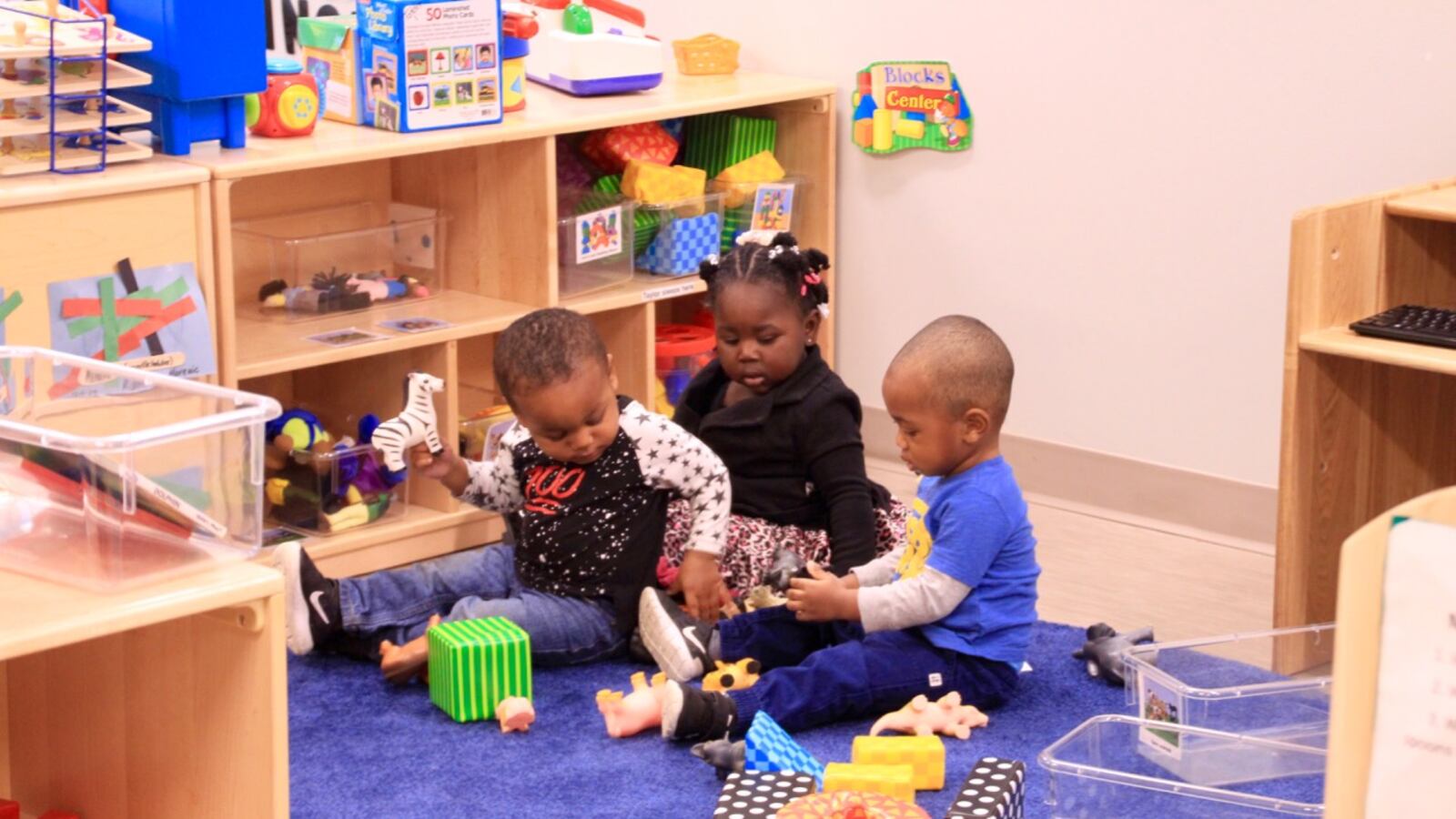Four years ago, then-Gov. Mike Pence created an uproar when, at the last minute, he nixed Indiana’s chance for up to $80 million in federal dollars to develop the state’s fledgling public prekindergarten program.
But later, as On My Way Pre-K grew, Pence acknowledged that the federal grant could be “a good fit.” And now, Indiana could have another shot at those dollars.
The application for the next round of the federal preschool grant was expected to open Tuesday. Early childhood education advocates, who are pushing again to expand On My Way Pre-K, are watching to see if Indiana’s current governor, Eric Holcomb, will pursue the funds — which could be a key piece of making pre-K more broadly available across the state.
“It’s high time our state caught up with the rest of the nation,” said Ann Murtlow, president and CEO of the United Way of Central Indiana, one of the state’s most influential supporters of early childhood education. “Surely federal grant funding could make a significant impact in providing much-needed high-quality pre-K for low-income 4-year-olds in our state.”
Holcomb, who has been supportive of pre-K expansion, hadn’t decided whether Indiana will apply for the federal grant, a spokeswoman wrote in an email last week. His office was waiting to see the details of the grant’s requirements in the application.
Some of the political fight around the expansion of pre-K in Indiana has died down since Pence took his stand, in part because of the progress of On My Way Pre-K. But Holcomb will likely still have to weigh similar tensions: How much should Indiana invest in pre-K, and how quickly?
The federal Preschool Development Grant could be used to craft Indiana’s game plan for expanding early learning opportunities, by conducting a statewide needs assessment and coordinating existing federal, state, and local programs that serve children from birth to age 5, according to the grant description.
In that way, this version of the grant is significantly different from the one Pence walked away from. In the past, in other states, the grant funded thousands of new and improved pre-K slots or created new programs.
Pence had initially backed out of the federal grant application in 2014, saying he had concerns about “strings” that could come with it. “When it comes to early childhood education, I believe Indiana must develop our own pre-K program for disadvantaged children without federal intrusion,” a statement from his office said at the time.
Two years later, Pence changed his stance, reaching out to federal authorities to ask about the next opening for the grant. Pence said he felt the state had built the supports to further expand the program. He explained that, in pushing for Indiana to launch a public pre-K program, he had promised lawmakers to “not expand the program until we saw evidence that it was working.”
But one expert says the federal grant still could have helped Indiana take steps to improve pre-K quality, particularly with instruction and curriculum, and that the infusion of federal dollars wouldn’t have necessarily forced a fast expansion.
“Indiana really missed out on the initial opportunity to focus on quality, to start small and then put some dollars in place over subsequent years to be able to build on that and expand,” said Laura Bornfreund, director of early and elementary education policy at New America, a think tank.
In the new round of this grant, up to 40 states and territories will receive awards between $500,000 and $10 million to conduct a statewide needs assessment, develop a strategic prekindergarten plan, maximize parental choice, and improve the quality of programs. States have until Oct. 15 to apply, and the funds — almost $250 million in total — would be awarded in mid-December.
On My Way Pre-K, the state’s program for 4-year-olds from low-income families, currently serves about 4,000 children in 20 counties. About three years into the program, state lawmakers roughly doubled the amount of funding for the program to $22 million this year. That doubled the number of students served each year and expanded the program’s reach to more parts of the state.
The city of Indianapolis, with corporate and philanthropic matching dollars, is spending $40 million over five years to fund pre-K for 3- and 4-year-olds from low-income families. Indiana also has federal Head Start and Early Head Start programs that last year served about 14,000 children from low-income families, and the federal Child Care and Development Fund program helps nearly 32,000 children receive care.
Advocates say they want to see continued expansion with a focus on quality. Early Learning Indiana, an advocacy organization, estimates that about 160,000 children ages 3 to 5 years old need some type of care because their parents are working. Just a small fraction of all preschool-aged children in Indiana — about 15 percent — are enrolled in high-quality care, the group said.
While Indiana has made strides toward improving early childhood education, parts of the state still lack access to high-quality preschool, said Early Learning Indiana director of public affairs Jeff Harris.
“Indiana has done a nice job of really focusing on quality,” he said. “It’s a matter of growing it strategically and responsibly to make sure we have those high outcomes.”
Correction: August 15, 2018: An earlier version of this story inaccurately stated that the grant application process opened Tuesday. That was the original schedule, but it was then pushed back.

